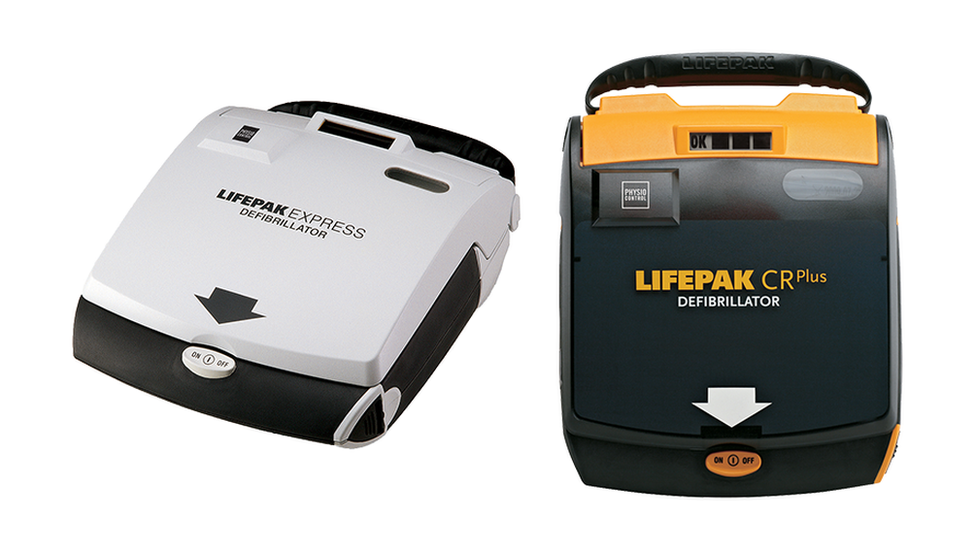Warning issued over risk to defibrillators in public places
- Published

The faulty defibrillators, made by Physio-Control
More than 2,000 defibrillators for use in public places like railway stations and schools have a potentially faulty component and might not deliver an electric shock in an emergency.
The models LIFEPAK CR Plus and LIFEPAK EXPRESS Automatic External Defibrillators (AED) were the ones affected, the Medicines and Healthcare products Regulatory Agency said.
The manufacturers have sent out safety instructions for the devices.
No patient incidents have occurred.
The defibrillators, made by Physio-Control, are public access defibrillators (PAD) - so called because anyone can use them in an emergency.
Approximately 2,600 devices are thought to be defective.
No shock
The MHRA said the fault was caused by an internal component that could become stuck in the closed position.
This means the device could fail to deliver an electric shock to resuscitate a patient in cardiac arrest.
It advised people to carry out a safety check on their devices and arrange for the component to be replaced.
If they have not received the manufacturer's safety alert, they should locate the serial number on the label on the back of the device and call the manufacturer's customer support number or visit their website to seek further advice.
What is a defibrillator?
It's a device that gives a high energy electric shock to the heart through the chest wall to someone who is in cardiac arrest
This high energy shock is called defibrillation, and it's an essential step in saving a life
If someone has had a cardiac arrest, call 999 and start chest compressions or CPR
Then find out if there is a defibrillator nearby
John Wilkinson, MHRA's director of medical devices, said: "These devices deliver lifesaving treatment and it is vital that they work in an emergency.
"Those responsible for them should carry out the instructions by the manufacturer.
"If you have any questions, or have not got the manufacturer's safety alert, call Physio-Control's customer support on 0808 258 0094."